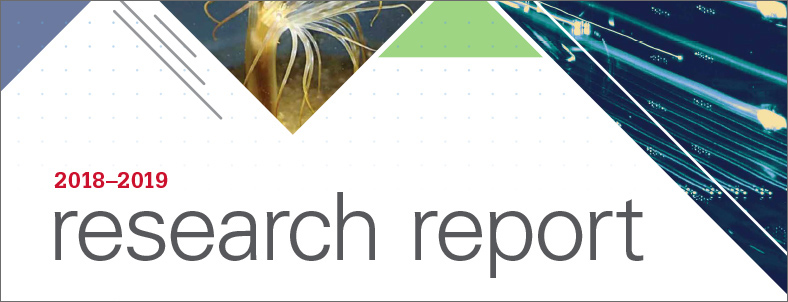Jason Slot, associate professor of fungal evolutionary genomics at The Ohio State University, is performing research to ensure the longevity of one of the world’s favorite crops: coffee. Specifically, Slot’s group studies the genomics of fungi that live in coffee plants to understand their function and relationship within the plant and to better understand the plant’s microbiome in general.
Coffee plants are plagued by several diseases, including coffee rust, caused by a pathogenic fungus. Interestingly enough, the fungi that live inside coffee plants have a symbiotic—mutually beneficial—relationship that could help fend off diseases, keeping both the coffee plants and the fungi alive. Slot’s group is working to understand how this happens at a genomic level, as well as how the fungi stays alive inside the plant.
“What we propose to do is to identify chunks of the genome we call gene clusters that enable different species of fungi to live inside of the coffee trees, the coffee leaves actually,” Slot said. “We also look for clusters of genes that enable the fungi to produce chemical defenses to defend the coffee plants against their disease organisms.”
Slot’s group sequences the fungal genome and uses the Ohio Supercomputer Center's (OSC) Owens Cluster to process the genetic data, looking for particular sets of genes in a process called annotation. Using a custom-developed software and programs, they can then compare genomes of different fungal species to identify different functions of the plants and build hypotheses for how the fungus performs its particular ecology.
“We’re currently funded to ask a very basic question…and that’s how plants can use their own genes to control what their microbiome looks like,” Slot said.
While Slot may describe the research as basic, it is fundamental to many fields of biology, most of which have organisms and microorganisms interacting. Because of this, knowing how microbiomes work and how they can be altered to combat disease and stress, for example, is extremely important. As they develop this research, Slot’s group is also building a library of potential fungi that could be used as biological control agents and uses high performance storage at OSC as well.
“Those that we find that are particularly associated with the coffee in its healthiest state could be potentially used by people in the coffee industry to be a natural pesticide—a living organism that’s a pesticide,” Slot said.
Slot’s work is done in collaboration with Ana Alonso at the University of North Texas, and Priscila Chaverri at the University of Costa Rica/ University of Maryland.
________
PROJECT LEAD // Jason Slot, Ph.D., The Ohio State University
RESEARCH TITLE // Evolutionary and ecological genomics of endophytic fungi of the coffee family
FUNDING SOURCE // National Science Foundation
WEBSITE // u.osu.edu/slot.1/research

